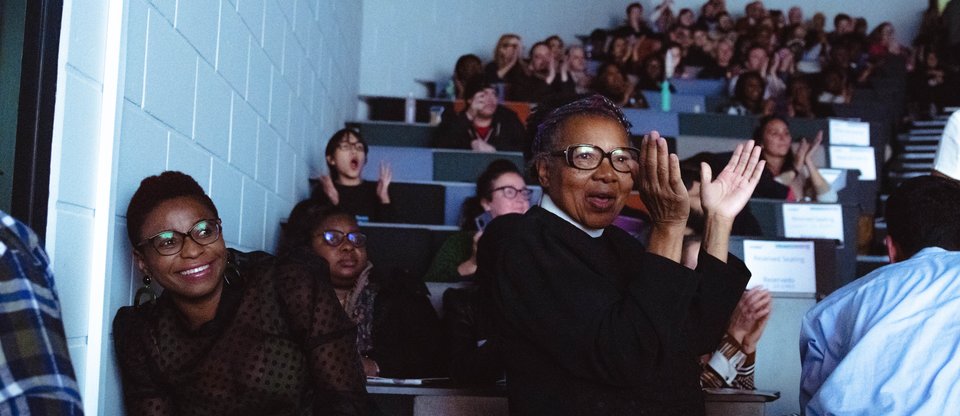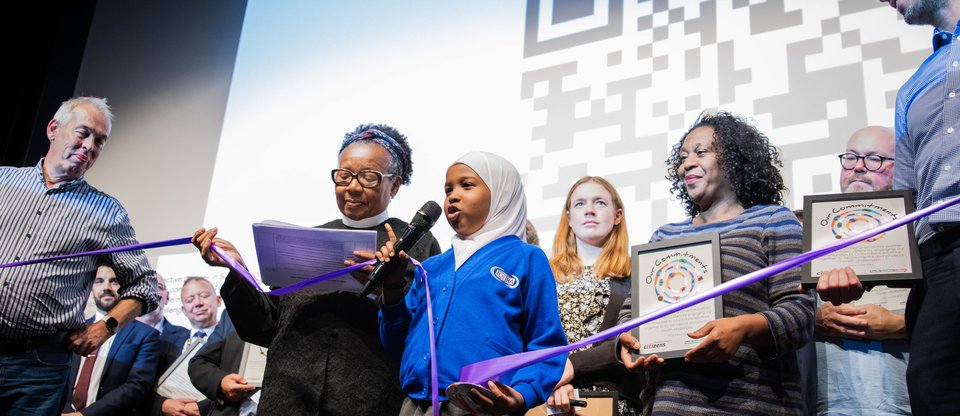Migrant Community leaders call for equal access to NHS services
Migrant community leaders call for equal access to NHS services

On May 10th, Citizens UK, South London Listens, and Doctors of the World hosted an online Safe Surgeries Summit on removing barriers to primary healthcare access for migrants in South London.
The event was held to take forward key commitments made in October 2022 as part of the South London Listens programme, a grassroots movement of 140 statutory, voluntary and charity sector partners working to build community resilience and prevent a mental ill-health crisis due to the impact of the cost-of-living crisis and legacy of covid-19. It was attended by close to 100 community and NHS leaders from across the South London community.
Individuals with lived experience of healthcare barriers shared the challenges they have encountered accessing primary care and made recommendations for what the system could do better.
Migrants and sanctuary seekers are at times turned away from accessing primary healthcare to which they are legally entitled. This lack of access may occur for several reasons:
1) They do not have a fixed address.
2) They lack documents, such as passports and proof of identification, that are frequently requested by GP practices during patient registration (despite not actually being required by law).
3) They are still learning English and struggle to communicate with practice staff.
In my English class and community group, I have met women who don’t speak English very well and who have had problems registering with a GP, because they don’t have a passport or address, or they are temporarily living with their friends. Sometimes we have to do phone appointments, but we can’t explain what we need clearly on the phone.
Jun Lian, a Mandarin teacher, ESOL student, and Creating Ground member summarised the barriers
I still needed to bring my papers. It felt like I was applying for a job. At that moment, it clicked for me that I wasn’t going to go far in England. Because if this was just the doctor, how did the rest of society view me?
Karen Harris from Lewisham Refugee and Migrant Network shared her frustration at being turned away by a GP surgery for lacking documentation
Despite these challenging experiences, community leaders celebrated the primary care professionals and GP staff that are working hard to create inclusive, safe, and welcoming spaces. Community leaders and NHS staff expressed a deep desire to continue to work together and acknowledged that only by partnering with one another, can we make healthcare equity and inclusion a priority across South London.
Dr Shazia Munir, a Lambeth GP who specialises in health inclusion, emphasised the value of Doctors of the World’s Safe Surgeries initiative: “It’s brilliant that the Safe Surgeries scheme is being implemented, but I think it’s really important that this continues and is rolled out to all GP practices if possible, as it really makes a huge difference to those individual patients.”
Community leaders presented policy recommendations to leadership from the NHS Integrated Care Boards (ICBs) in South East and South West London aimed at improving healthcare inclusion for migrants and sanctuary seekers.
Both ICBs committed to the asks and agreed to meet again with leaders to create a plan to deliver on them by 31 March 2024:
- Jointly helping to co-produce, disseminate and keep up-to-date, a patient advocacy guide to help patients know their rights and entitlements for accessing primary healthcare.
- Having Safe Surgeries champions in place at local level – tasked to work with boroughs supporting GP practices and GP networks to sign up and further embed safer surgeries guidance.
- Exploring the establishment of a new cross-borough Community of Practice for Primary Care, which aims to help surgeries learn from each other, supports the wider work around health inequalities and inclusion, and creates space for celebrating practices working to embody the spirit of Safe Surgeries.
SWL ICB representative Attracta Asika reflected that “I have been honestly humbled to be here and hear these lived experiences,” affirming that “registering with a GP is a fundamental right” and “nobody in South West London should be refused registration for any reason…we will work together to get that done.” SEL ICB representative Sam Hepplewhite said, “we are absolutely committed to getting as many practices as possible to Safe Surgeries.”
Co-Chairs for the gathering, Sophie Gregory from Lewisham Refugee and Migrant Network and Lucie Vyhnálková from English for Action, celebrated the commitment from NHS leaders sharing that the “agreements made at the summit signal that there’s deep buy-in around this issue to make a tangible difference to thousands of our community members.”
Almost 1,400 GP practices have signed up as Safe Surgeries across England. In South London, over 200 GP surgeries, roughly 50% of practices, have made the initial commitment to sign up as a Safe Surgery. But signing up is just the start, GP surgeries need support to embed these principles in their practice. Doctors of the World works with primary care staff, offering training to frontline staff and disseminating useful resources and examples of good practice. To sign up, practices simply need to complete a two minute form and Doctors of the World will follow-up with next steps.
To access materials shared at the Safe Surgeries Summit (including the call recording, translations, a bank of collected stories that highlight challenges to accessing primary care) click below.

South London Listens is a community partnership project between South London schools, faith groups and community organisations. Local people in these institutions have been working with the NHS in South London to take action on mental health recovery after the pandemic.




